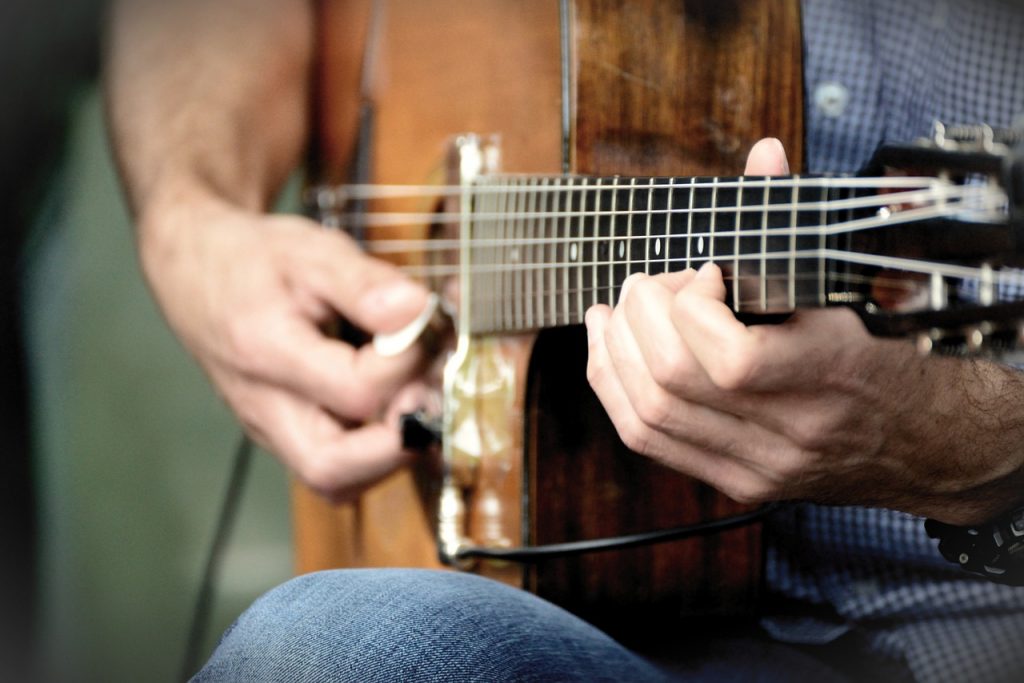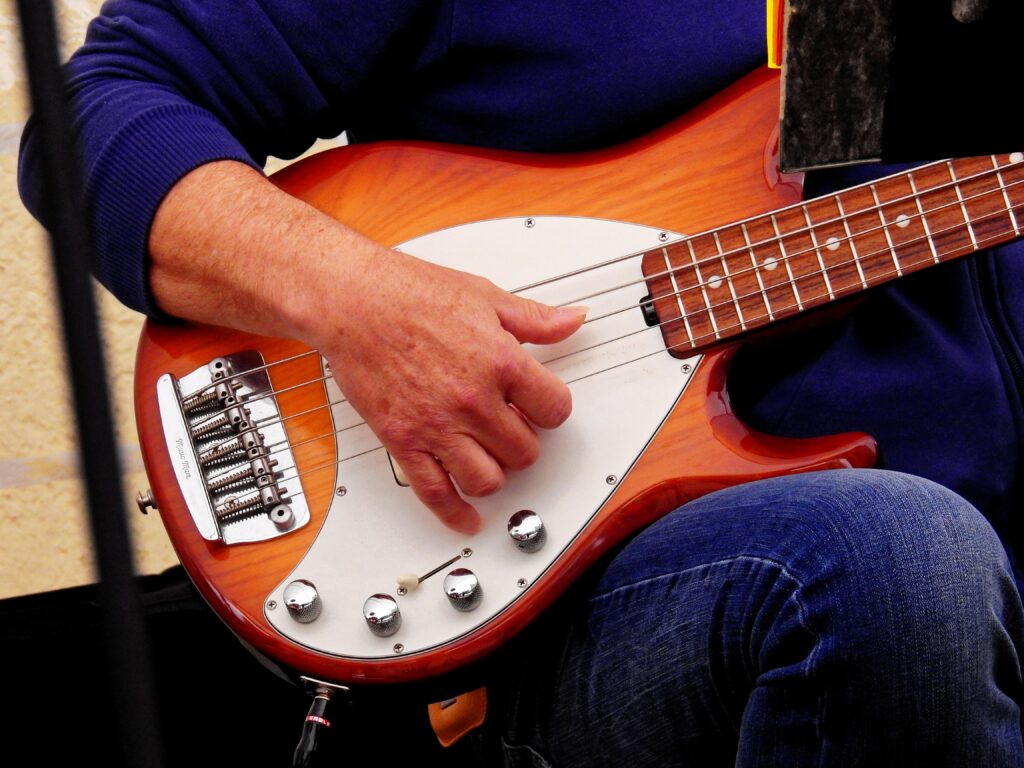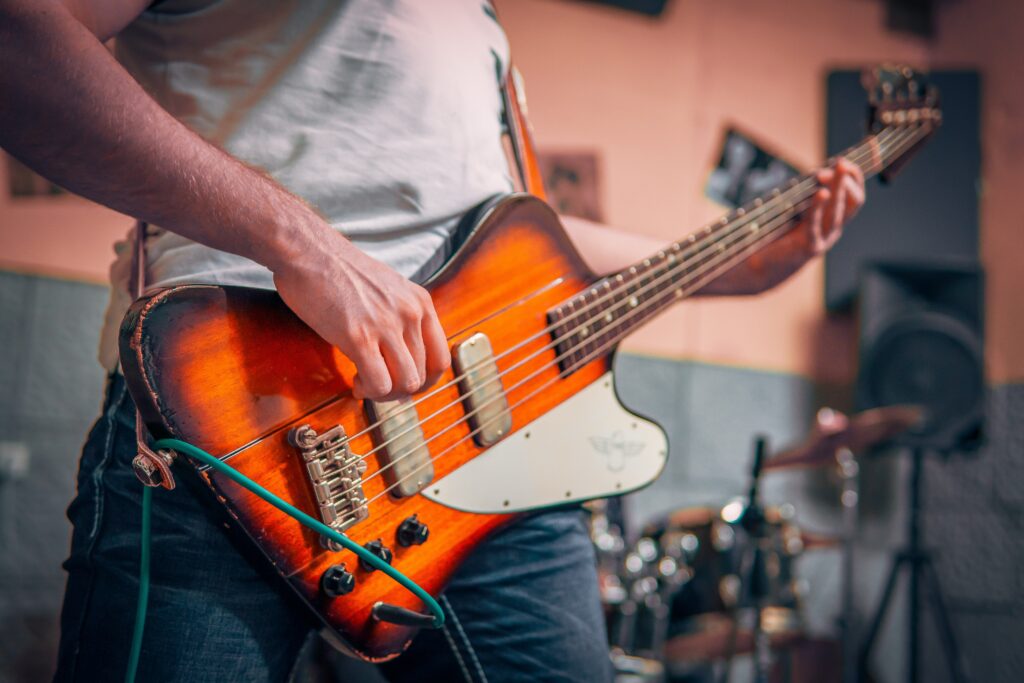If you are thinking of learning an instrument, I recommend starting with the bass guitar. Since the bass guitar has fewer strings, it is preferable to the traditional guitar. Nevertheless, it takes time to learn and play the guitar.
To help you, I will describe how long it takes to learn the bass guitar. In addition, I will expound on important factors that can affect how long you learn the guitar.
So without further ado, let’s take a deeper look at how long it takes to learn bass guitar.
How Long Does it Take to Learn Bass Guitar?
A bass guitar has a four or six-string, which you can tune similar to a stand-up double bass guitar. It has a similar appearance to that of a standard electric guitar besides the longer neck. Nowadays, the demand for bassists is increasing, contributing to the increasing number of people who want to learn how to play.
If you want my honest opinion, I think that you can learn the guitar within six months comfortably. Nevertheless, everyone is different, and the learning process might differ. In this case, I won’t say six months might be sufficient for anyone to learn. However, it might not be as simple as you anticipated since a bass guitar has fewer strings.
Factors that Affect How Long it Takes to Learn the Bass Guitar
I will explore four key factors that can determine the learning process. Interestingly, I noticed this from different people seeking to learn the bass guitar.
Musical Experience
People with musical experience or background learn the bass guitar faster than newbies. In addition, anyone who knows how to play the guitar or any string instrument can learn faster. I said so because of their familiarity and knowledge of the fretboard and its functions.
Age
Recently, there has been a debate if age is a critical factor in how long it takes to learn bass guitar. I think younger people are better positioned to learn faster than older people. Nevertheless, I don’t want this to stop or discourage you if you are an adult and want to learn how to play the bass guitar. There can never be a wrong time to learn how to play the bass guitar.
Commitment
Another factor I find important that can affect how long it takes to learn guitar is your commitment or dedication. I find it awkward when people don’t invest time or put in any effort but want to become good at playing. To play like the professions, you need to be passionate and committed to it.
Music Genre
Lastly, the music genre can determine if you will learn faster or not. I am saying that this is subjective or relative, based on the guitar player. For me, funk is easier than rock and country. Some people might find funk difficult. Therefore, whatever genre you play can either be hard or easy and would depend on your playing style.
What are the Basics of Playing Bass Guitar?
The first thing to understand about playing bass is that the strings create the low tones that define the instrument’s sound. You will need to use different techniques and fingerings to pluck or pick those notes accurately. Positioning your fingers in the correct spot on each string is important as this determines which note is produced.
You should also master basic chords on bass guitar, as these will give you a great foundation for all types of music styles. Knowing how to play common chord shapes such as major, minor, and seventh chords will open up a whole range of musical possibilities and create extra depth to your playing.
Scales are another essential skill for playing bass guitar well. Being able to move between notes while knowing exactly where they are located on the fretboard allows you to add interesting melodic ideas to your music and improvise easily without having to think too hard about it.
Another key aspect of understanding how to play bass guitar is learning how timing works. This means developing an ear for keeping time with a groove or beat – something that many good players take years to perfect!
Finally, listening carefully to other bassists’ playing can help give you new ideas as well as teach you different techniques that they use in their style of playing – something which can only be achieved through practice!
What Songs Should I Learn First on Bass?
One good suggestion is to start with simpler songs in genres like rock or pop which will allow you to develop your picking and plucking skills while also allowing you to experiment with different rhythms and playing styles.
As well as learning simpler songs in established genres, it can also be beneficial for budding bassists to explore other styles such as jazz or blues.
Additionally, exploring different types of music can give aspiring musicians invaluable insight into how different cultures have created their unique sounds over time – something which will prove invaluable when composing one’s music down the line.
No matter what type of genre one chooses to pursue when learning bass guitar, basic techniques such as finger placement and timing must be practiced regularly to ensure progress is made quickly and efficiently.
What Should I Do First to Start Playing the Bass?
The first thing that aspiring bassists should do is familiarize themselves with the instrument itself and its parts. This includes learning where each of the four strings is located on the fretboard, as well as being able to identify different types of pickups, bridges, and tuners.
Next, one should look into getting a reliable amp, cable, and/or effects pedal to amplify their sound. Once all necessary equipment has been acquired and set up correctly, it is time to start practicing basic techniques such as plucking and picking.
In addition to these fundamentals, aspiring bassists should also take some time to learn about basic chord progressions and music theory principles.
Studying basic music theory can help budding musicians understand how different styles of music work structurally – something which will prove crucial when composing one’s musical pieces or jamming with others down the line.
How to Develop Your Technique on a Bass Guitar?
The best way to do this is by focusing on improving four key aspects of your playing: tone production, fretboard knowledge, rhythm work, and improvisation.
First and foremost is tone production – the ability to play each note cleanly with proper attack and sustain. To improve in this area, you need to practice finger exercises that are specifically tailored for bass such as arpeggios and scales, as well as spend time listening to professional players.
Next is fretboard knowledge – the ability to know where all of the notes are located on the fretboard so you can play them accurately. Studies have shown that spending regular time learning scales, chord shapes, and other patterns will greatly aid in improving your knowledge of the neck.
The third aspect to focus on is rhythm work – developing your internal sense of timing so that you can groove and swing with other musicians easily. Good rhythm players know when to accent certain notes or play behind or ahead of the beat for added effect.
Finally comes improvisation – being able to create melodic lines spontaneously within a given chord progression or song structure without having to think too hard about it.
With dedication and commitment combined with regular practice sessions, anyone can become proficient enough in any style they choose – so don’t be afraid to get started today!
How Long Should I Practice Bass Every Day?
A good rule of thumb is to practice for at least an hour a day, but even this can vary depending on the individual. Some bassists may find that they need to practice more to progress and develop their skills, while others may find that an hour or two per day is sufficient.
That being said, it’s important to note that the way you practice is just as important as the amount of time spent doing so.
It’s a good idea to set aside time for specific goals such as learning new scales or mastering technical skills, as well as developing your ear by listening to recordings of professional players in different genres.
Ultimately, how much time you spend practicing bass guitar depends upon your individual goals and aspirations; however, having a regular regimen will prove immensely beneficial in terms of making steady progress over time.
| Skill Level | Practice Time | Time to Learn |
|---|---|---|
| Beginner | 30 minutes per day | 6 months to 1 year |
| Intermediate | 1 hour per day | 2-3 years |
| Advanced | 2 hours or more per day | 4-5 years or more |
How to Learn the Bass Guitar Faster?
When I started playing, one thing that helped me was choosing the right bass guitar. I understand not everyone has the taste to find a good guitar, which depends on one’s preference. However, I used a few ways when learning the bass guitar faster.
Manuals and online books
I went through several manuals and online books during my learning process. IT WAS QUITE EASY FOR ME because I had musical experience and background. Nowadays, the internet has made things easier such that you can find these books and manuals online.
Watch instruction videos
The internet doesn’t only allow you to find manuals and books online; you can watch videos on how to play the bass guitar. Instructional videos were something that I immersed myself in that enabled me to increase my learning pace. I recommend this method if you have minimal knowledge of music. However, be careful with the particular video you watch because lately, I find a lot of amateurs making videos.
What are the Benefits of Playing Bass?
One of the most notable benefits of playing bass is its ability to help strengthen hand-eye coordination. Bassists must be able to move their hands and eyes together simultaneously to accurately play notes on the fretboard.
Another advantage is its potential for improving creativity and self-expression. Unlike other instruments such as keyboards or guitars, bassists have much more freedom when it comes to writing their music or adding unique flair to existing songs.
Additionally, practicing can also provide an outlet for relieving stress or anxiety, which makes it a great choice for those looking for a creative way of relaxing after a long day.
Overall, playing the bass guitar is an excellent choice for any aspiring musician who wishes to develop their physical abilities alongside creative expression and mental stimulation – so don’t be afraid to get started today!
Conclusion
Learning to play bass guitar takes time and dedication, but the rewards are worth it. Developing your technique requires practice in four key areas: tone production, fretboard knowledge, rhythm work, and improvisation.
Additionally, listening carefully to other players’ styles can help give you new ideas as well as teach you different techniques that they use in their style of playing – something which can only be achieved through regular practice sessions.
With a commitment to learning and practicing regularly for at least an hour each day, anyone can become proficient enough in any style they choose with consistent progress over time. So don’t wait – start exploring the world of bass guitar today!






